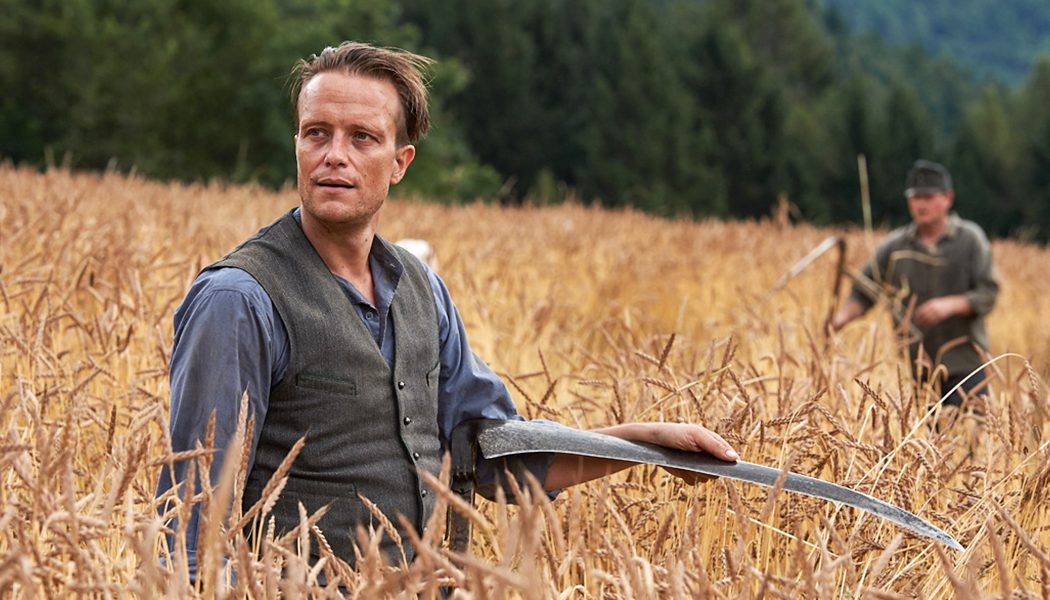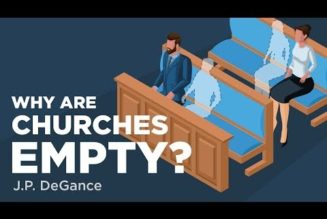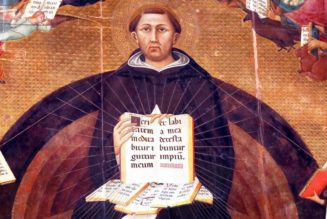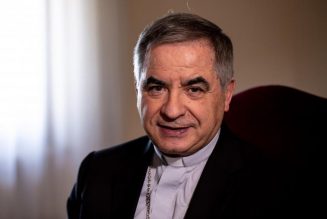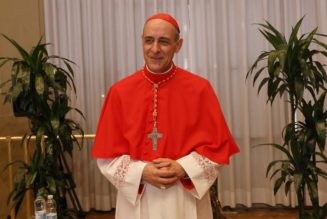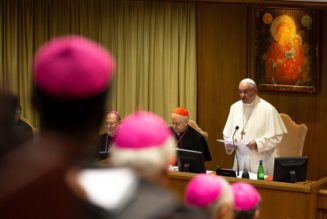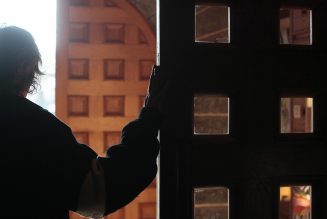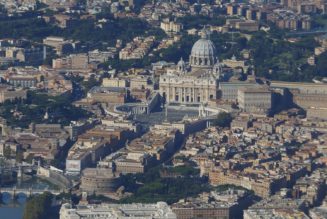
“But I am free.” With those simple but profound words, Franz Jägerstätter resists the temptation to compromise the truth by swearing an oath of loyalty to Adolf Hitler in order to save his life and to spare his family much suffering. This decisive moment is but one of many examples of the rich biblical themes that pervade Terrence Malick’s latest film, A Hidden Life. The freedom of which Jägerstätter speaks is not, of course, freedom as most modern Americans understand it. He does not mean the freedom to choose indiscriminately between a variety of options, nor even the freedom to roam without restrictions, but rather freedom in the classical and biblical sense. This is a freedom that is based on truth (John 8:32), and, as such, it is a freedom that can withstand suffering, imprisonment, and even death, confident that those who are persecuted for the sake of righteousness will inherit the kingdom of heaven (Matt 5:10).
Malick’s film introduces Jägerstätter—a real life Austrian of the World War II period beatified by Pope Benedict in 2007—with a stunning aerial view of Sankt Radegund, his hometown in upper Austria. Billowy clouds floating over lush, green landscapes suggest a marriage between heaven and earth. It’s an image to which Malick returns again and again throughout the film. At the heart of the story, however, lies the question: Is this marriage simply an illusion? The entire film wrestles with this question through the lens of the life and death of this heroic farmer.
Juxtaposed with the heaven and earth imagery is the symbolism of the harvest, another running motif throughout the film. On one level, of course, the harvest is simply a regular part of farming. On a deeper level, however, the harvest symbolizes judgment (Matt 3:12; 13:36-43). At one point in the story, Jägerstätter asks, “Is this the end of the world?” While it is not the end of the world as a whole, Jägerstätter’s world does come to an end, cut short by the blade of the guillotine. His faithfulness to the end, however, shows that at the judgment he will be counted among the wheat.
A Hidden Life subtly portrays Jägerstätter’s fidelity to the end as the full flowering of his baptism. Water imagery pervades the film, but it features prominently at two particularly important moments. As he is being carried away by train to one of the places of his imprisonment, the camera pans to a shot of a river. Christ, of course, received baptism in the river Jordan, and some of the Gospels subtly connect his baptism with his crucifixion. The river symbolism reappears on the day of Jägerstätter’s martyrdom, as he is being transported to the place of his execution. It is a fitting symbol for what the Austrian is about to undergo. As St. Paul taught the early Christians at Rome, through baptism believers die and rise with Christ (Rom 6:3-11), and this dying and rising marks the pattern of the Christian life. Glory comes only through suffering together with Christ (Rom 8:17).
In between his imprisonment and his death, amidst the increasingly brutal treatment he receives, we frequently see Jägerstätter peering at the sky. His suffering does not prevent him from keeping his gaze fixed firmly on heaven, and it is that gaze that strengthens his resolve even in the midst of unrelenting temptation.
Much of the latter half of the film is gloomy and dark, and understandably so. Nevertheless, a scene depicting the night before Jägerstätter’s death hints at the victory that he is about to accomplish. We see the farmer’s face in the dark, illuminated by a single candle. As the Gospel of John puts it, “The light shines in the darkness, and the darkness has not overcome it” (John 1:5). The next day, the day of his execution, the screen is flooded with sunlight. Already the light of the resurrection shines through the tragedy of this man’s courageous death.
Throughout the film Malick uses the German language sparingly to great effect. In the first few instances, the language comes off as harsh on the lips of those persecuting Jägerstätter, his fellow villagers and the Nazi court trying him for treason. But as he sits on a bench awaiting his turn at the guillotine, we hear him pray in a serene voice, “Vater unser im Himmel …” The Lord’s Prayer, in which we ask, “Thy kingdom come, thy will be done on earth as it is in heaven,” is the last German spoken in the film. The marriage of heaven and earth, so frequently hinted at throughout the story, becomes a reality in Franz himself. The point of the film is not, as one critic has suggested, that “God does not answer prayers.” Rather, the point is that by his free act, Jägerstätter imitated his Lord in praying, “Thy will be done” (see Mark 14:36), and by that act of humble submission his freedom came to perfection.
In his final letter to his wife and children, Jägerstätter expresses the hope that they will one day meet again in the mountains. Most likely he does not mean the literal mountains of Austria, but rather the mountains as the place where God dwells (see, e.g., Psalm 74:2), the place where heaven and earth meet. Far from being “a dreary streak of glumness,” this film, as suffused with biblical imagery and prayer as was Jägerstätter’s own life, is a story of hope, the hope that one day heaven will fully transform this earth, righting the wrongs of our sad history.
May the example of Franz Jägerstätter inspire us to lives of courage, and may his intercession obtain for us the grace we need to be faithful to the end, as he was faithful to the end.
